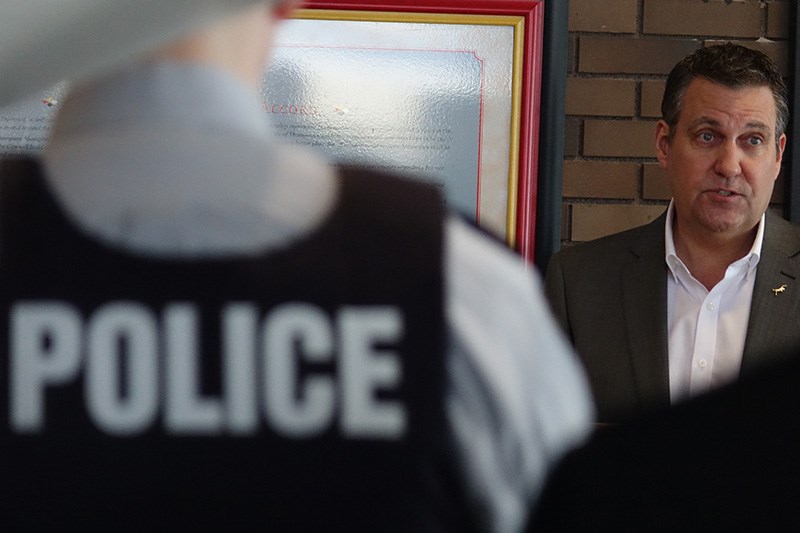The provincial government is providing $300,000 to help the City of Thompson, the RCMP and other organizations develop a public safety strategy as part of its Policing and Public Safety Strategy announced May 23.
The strategy focuses on eight key areas to help reduce crime in Manitoba, which has some of the highest rates in the country. These include improving intelligence-sharing and information among police agencies, targeting communities with high rates of violence, improving traffic safety, reducing demands that take police away from combating crime, providing better support to vulnerable people and victims of crime, expanding police participation in early case diversions, collaborating on policing initiatives affecting Indigenous communities, and enhancing community mobilization and hub tables, which bring multiple organizations together to co-ordinate crime prevention initiatives and keep at-risk people out of the criminal justice system.
“The Manitoba government is committed to reducing crime and making our communities safer for Manitoba families,” said Justice Minister Cliff Cullen in a press release announcing the strategy. “I’m confident the Policing and Public Safety Strategy will support greater collaboration between police agencies and Manitoba Justice, improve criminal intelligence and enforcement, and help police combat the illicit drug trade.”
The $2.7 million strategy is being funded by $2.3 million allocated to reducing crime and fighting illicit drugs in the 2019 budget. Other money is coming from Manitoba’s share of the Guns and Gang Violence Action Fund and the federal Proceeds of Crime Fund.
“The Manitoba government is focused on keeping Manitobans safe by stopping the proliferation of illicit drugs in our communities, disrupting and suppressing gangs and other criminal organizations, and stopping the flow of illegal firearms and illicit drugs,” said Cullen. “This is an ongoing process and we will monitor results closely to drive further improvements to keep Manitobans safe.”
Other specific initiatives being supported include creating a collaborative provincial intelligence model to help law enforcement agencies centralize data and other information ($835,000 in 2019-20), supporting joint policing operations to disrupt illicit drug trafficking networks with up to $1 million, developing an interdiction pilot project to help support training and joint forces projects ($200,000), enhancing support for community mobilization and hub tables to develop standards and expand programming into northern communities ($250,000) and investing $200,000 to expand Health IM initiatives with police and regional health authorities. The HealthIM response tool helps police officers determine the most appropriate response for someone having a mental health crisis based on officers’ observations and a risk assessment tool. The province also said it would proclaim amendments to the Mental Health Act to enable peace officers to transfer custody of people they bring to health-care facilities for involuntary medical examinations, to reduce the amount of time police officers spend waiting in hospital emergency rooms.
The public safety strategy for Thompson will address key issues such as violence, chronic runaways, exploited persons, alcohol and substance abuse and at-risk youth.
The strategy also says that, “Manitoba Justice will continue to support law enforcement and community stakeholders in approaches to combat and reduce public intoxication and disorder, specific to the City of Winnipeg and the City of Thompson downtown areas.”
The Justice department will also work with Indigenous communities and organizations like the Manitoba Metis Federation, the Assembly of Manitoba Chiefs, Manitoba Keewatinowi Okimakanak (MKO) and the Southern Chiefs Organization to expand police participation in restorative justice programs that respect Indigenous traditions and culture. The restorative justice centre model will also be expanded to more communities in Manitoba, including Portage la Prairie, Dauphin and Thompson.




